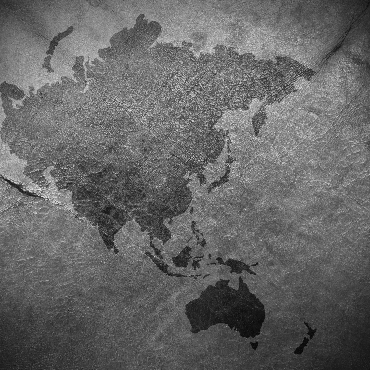ABRAHAM ACCORDS OFFER NEW DELHI A NEW OPENING…
The last issue of the Indo-Pacific Monitor highlighted India's reliance on Iran's Chabahar Port for secure trade routes into Central Asia. As New Delhi considers its broader goal of shipping goods to Europe, however, Indian policymakers may soon hit upon a new route running through the Middle East. Thanks to last year's passage of the "Abraham Accords" – as the normalization agreements between Israel and the United Arab Emirates, Bahrain, Sudan and Morocco have collectively come to be known – new shipping corridors are opening up between European states on the Mediterranean, like Greece, and the nations of the Persian Gulf. By utilizing Israel as a transit hub for trade, India's geopolitical calculations could undergo a "paradigm shift," a recent analysis from the National University of Singapore and the Institute of South Asian Studies has suggested. Although New Delhi will continue to depend on Iran to ship its goods to Central Asia, it may soon be able to exploit new opportunities created by Israeli-Arab normalization for its commerce to reach Europe. (National University of Singapore, August 2021)
…WHILE THE TALIBAN'S ASCENT COMPLICATES INDIA'S CALCULUS
The recent fall of Kabul to the Taliban presents seismic political challenges to governments around the world, India prominent among them. Policymakers in New Delhi have invested billions in development projects and infrastructure in the Southwest Asian state, and have set up scholarship programs for Afghans to study in India. Indian statesmen and analysts have long recognized the geopolitical importance of Afghanistan in their country's efforts to secure commercial access to Central Asian states. The Taliban's return to power now significantly complicates those plans. If Pakistani influence in Afghanistan waxes yet again as a result, Islamabad could gain strategic depth for insurgent operations in Kashmir. And if Beijing makes good on its designs to link Kabul to the China-Pakistan Economic Corridor (CPEC), India could find itself boxed out of Central Asia altogether. (NPR, August 27, 2021; Voice of America, August 30, 2021)
CHANGING SOUTH KOREAN ATTITUDES ABOUT CHINA, JAPAN
China's global image has taken a hit since early 2020 with the onset of COVID-19, but Beijing is facing a new perception challenge in its immediate backyard. In a recent Pew Research Center poll, young people in South Korea were found to hold a more negative view of China than older South Koreans did. The real kicker, however, was respondents' changing perceptions of Japan. According to the same poll, young South Koreans now dislike China more than they do Japan – a notable development, given the historic scars created by Japanese imperialism. (New York Times, August 20, 2021)
TAIPEI WARNS BEIJING CAN "PARALYZE" ITS DEFENSES
In its annual report to the Legislative Yuan, Taiwan's parliament, the island's Defense Ministry included a stark new warning: that Chinese "soft and hard electronic attacks" could target "the global internet," with potentially devastating results. Such attacks, the report continued, "would initially paralyze our air defenses, command of the sea and counter-attack system abilities, [and present] a huge threat to us." The report also noted Beijing's concerted investments in ballistic missiles that can target not only Taiwan's critical infrastructure, but also put nearby American and Japanese troops and assets at risk. The Ministry of Defense reaffirmed its assessment from last year that China still lacks sufficient amphibious assault capability to successfully stage an invasion, but noted that the People's Liberation Army is making efforts to meet those mission requirements. (Reuters, September 1, 2021)
THAILAND'S UNREST CONTINUES
Despite over 100 activists being arrested and charged, the political protests in Thailand have persisted – and expanded. Initially, young Thai students fueled the protests, and their grievances were primarily political in nature. Now, new segments of society are beginning to join the ranks of the protesters, albeit for different reasons. Urban elites, which until recently supported Prime Minister Prayuth Chan-ocha, are frustrated at Bangkok's slow COVID-19 vaccine rollout and the government's dependence on China's Sinovac vaccine. Meanwhile, former royalist allies like Tanat Thanakitamnuay are breaking with the monarchy and junta government and organizing protests in wealthy Bangkok districts. Supporters of the government, however, insist that the disaffected represent a small percentage of the overall population. (Voice of America, August 4, 2021; Voice of America, August 9, 2021)
Want these sent to your inbox?
Subscribe
Indo-Pacific Monitor No. 20
Related Categories:
Democracy and Governance; Human Rights and Humanitarian Issues; Global Health; China; India; Japan; South Korea; Southeast Asia; Taiwan
